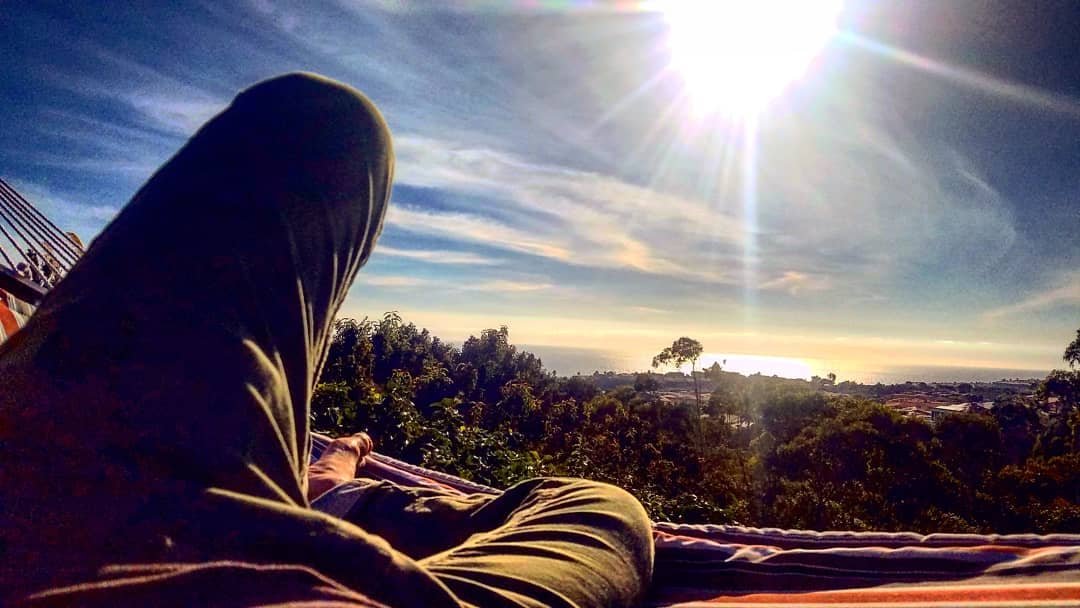The Traveler’s Lonely Life
On Travel, Moab, and Anthony Bourdain
By | Jacque Garcia
Issue II, July 2018
Anthony Bourdain was an advocate for travel- as often and as much as possible. He argued that by enriching your life with new places and experiences, you could expand your worldview in ways that enhance your own life and make you sympathetic to the lives of others. Many in Moab, whether they be long-term residents or just passers-through, embrace this notion of worldwide exploration. But along with the benefits of leading such a life, there are costs.
The mental illness that took Bourdain's life was not caused by a life of constant travel. But for many who are always on the go, jet-setting across states and countries every other month, travel can leave one feeling a little lost. It can be challenging to maintain a support network and a community while pursuing the richness of a traveler’s life.

When I spent a year driving around the southwestern United States, I felt for the first time a taste of complete and total freedom. I drove where the wind led me, stopped where the weather was kind and views were breathtaking and listened carefully to the beat of my own heart. I made brief and instantaneous connections with strangers, ate and drank at their local stops and in their homes, and learned that no matter how different we think we are from those around us, we can usually find something in common.
I have always looked up to Anthony Bourdain. A seasoned traveler and a true appreciator of the vast and multifaceted world we live in, Bourdain was uniquely skilled to advocate his zest for life, and as such his words inspired me and many others to seek out the new and the strange with unending curiosity.
“If you’re twenty-two, physically fit, hungry to learn and be better, I urge you to travel — as far and as widely as possible,”
Bourdain said, in one of his better known and widely shared quotes.
“Sleep on floors if you have to. Find out how other people live and eat and cook.
And so I did. It wasn’t without reason that Bourdain encouraged us to travel, either. He firmly believed that to travel was to learn and to grow.
He explained in another often reproduced quote, “It seems that the more places I see and experience, the bigger I realize the world to be. The more I become aware of, the more I realize how relatively little I know of it, how many places I have still to go, how much more there is to learn. Maybe that’s enlightenment enough – to know that there is no final resting place of the mind, no moment of smug clarity. Perhaps wisdom, at least for me, means realizing how small I am, and unwise, and how far I have yet to go.”
This idea is one that I hold near and dear to my heart, and I am not alone in appreciating it. The more places I go and people I meet and cultures I encounter, the more nuanced my understanding of the world becomes.
My hesitance to settle anywhere quickly turned to an inability to imagine myself leaving once I found Moab. This area’s whimsical draw toward travel and its appreciation of the wonders of the world around us are just a few of the reasons I’m happy to call it my home. Sometimes I think with nostalgia toward my days of constant travel and the freedom they afforded me.

But then I remember that, as I aimlessly drifted from one place to the next, I also thought I was destined to spend the rest of my life alone.
Travel, for all of the new and intriguing opportunities for human connection it affords, can also be extremely alienating. While the optimist in me insists that once you redefine your idea of home to travel, the entire world becomes your home. But the reality is that sometimes, it seems like nowhere is.
When I left Columbus, Ohio to galavant around the country, I gained a life of curiosity and adventure. But I lost a relationship, a home base, and a community.
The loneliness and isolation often brought on by a life of travel has a tendency to be swept under the rug or shielded behind a screen of glamorous instagram posts and travel blogs. One of the best perpetrators of this phenomenon is Anthony Bourdain.
In a piece for the Chicago Tribune, Jo Ann Towle highlighted the darker aspects of Bourdain’s life, saying, “Can Bourdain's death please generate a conversation about alcoholism and not just befuddlement about his fantastic life that countless people wish they had? Because you don't want his life. The travel, the breadth of his experiences, sure, maybe. But this man on the move had to stop sometimes. No cameras, no action. Just himself. I didn’t know him, but I do know addiction and it can be a fiercely critical companion that may take a back seat but lies in wait. It can tear us down and sometimes just won't shut up — goading shame, provoking self-loathing and inviting emotional isolation.”

We all need to stop sometimes. And I’m not here to talk about Bourdain’s problems. Rather, I’m acknowledging that everyone, myself included, has problems. And not just problems, but frustrations, stresses, low points, bad days, and more. And that they can be difficult to deal with on our own.
Community is comforting. But in order to build a community that will support you when you need them to, you have to invest back into the community yourself- something that can be challenging if you’re never around. That’s why so many travelers maintain the connections they make from afar, as to cultivate a worldwide network of friends and family they can return to at any time.

“When I’m on the road I talk to everyone,” he said. “I try and make those connections, because that’s how I battle feeling alone all the time while I’m on the road. I try to be as charismatic as I can be so I can at least have a conversation with someone.” He continued, “But as far as being home and having your constant community, they can’t really compensate.”
Overton, like many who visit Moab in the midst of their worldwide adventures, felt something unique when he came across the place years ago. “I felt this warm energy vibration coming from the rock, and that was when it all clicked for me,” he told me. “Being on the road and traveling and finding these minuscule remote moments is what it's all about for me.”

It was both in this town that he chose a life of constant travel, and in this town that he decided to settle once again. On his most recent trip to Moab, Overton decided to make plans to move in permanently in April of 2019. “When I was in Moab, I let go of everything,” he said. “For once, while I was on the road, I just existed. I wasn’t thinking of what I was going to do or where I was going to go next.”
Overton will soon become one of many residents in this town who struggles to find the balance between travel and community. I’m another, and I’m not satisfied that I’ve found the point of moderation yet. I’m not sure I ever will. But Moab seems like a place that at least allows a travel-lover to try.
